![]()
Logion 6: "Should we fast? How should we pray? How should we give alms? What rules of diet should we follow?”

Mar 21, 1923 — Feb 23, 2011
Shri Mataji Nirmala Devi was
Christian by birth, Hindu by
marriage, and Paraclete by duty.
"The Paraclete represents direct,
intimate divine intervention,
supporting and teaching
believers and challenging the
world, as Jesus did.” (D. Stevick
Jesus and His Own, 2011, 290)
“Religions are also the expressions and experiments of realized souls-the seers. They also talk about the inner being, second birth, and about Self-realization. In the beginning, in India, they tried to take the attention inside by introducing symbols (idols, icons, images) that they saw of this unconscious, universal being within. This gave rise to pantheism and the aspirant's attention got stuck to symbols (Sakar) and to rituals which killed the main objective. Shri Mataji Nirmala Devi was
Christian by birth, Hindu by
marriage, and Paraclete by duty.
"The Paraclete represents direct,
intimate divine intervention,
supporting and teaching
believers and challenging the
world, as Jesus did.” (D. Stevick
Jesus and His Own, 2011, 290)
So the other type of experiments of talking only about the abstract (Nirakar) gave rise to many other religions which ended up as dogmas or 'isms.' The reason is obvious. Talking about the flower or the honey cannot take you to the honey but can only create dogmatic 'isms' in the mind. You have to be a bee to reach there, i.e., you have to be reborn. This has to happen within to take you inside. It is too great an achievement and unbelievable, but I feel the search of ages has brought great results.”
The Paraclete Shri Mataji
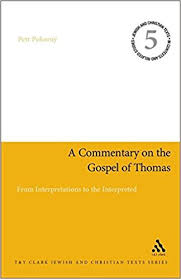
6 33,14b-23a
(1) His disciples questioned him, (and) they said to him: “Do you want us to fast? And how should we pray and give alms? And what diet should we observe?”
2) Jesus says: “Do not lie.
(3) And do not do what you hate.
(4) For everything is disclosed in view of
(5) For there is nothing hidden that will not become.
(6) And there is nothing covered that will remain undisclosed.”...
In the most reliable traditions about Jesus, the revelation of the (now) hidden meant the coming of the kingdom. In the Gospel of Thomas its meaning is more that of a revelation identical with inner self-understanding, as in logion 3:3. Nevertheless, the presence of such traces of the apocalyptic dimension of the kingdom is a supporting argument in favor of the authenticity of the eschatological proclamation of Jesus. At the same time, it confirms the reliability of the tradition that precisely this proclamation was appoint of issue between Jesus and his disciples. The solution offered by the Gospel of Thomas is one of the possible reactions to the demanding complexity and social impact of Jesus’ proclamation of the kingdom.”
A Commentary on the Gospel of Thomas
Petr Pokorny, T&T Clark; Reprint edition (December 22, 2011) p. 44-5
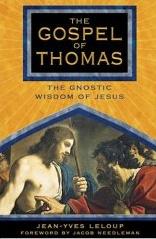
LOGION 6
His disciples questioned him:
"Should we fast? How should we pray? How should we give alms? What rules of diet should we follow?
Yeshua said:
Stop lying.
Do not do that which is against your love.
You are naked before heaven.
What you hide will be revealed,
whatever is veiled will be unveiled.
(CF. MATT 6:2,7,16; LUKE 6:31; ROM 7:15; II COR 5:10; EPH 4:25; COL 3:9; JAMES 3:14; GAL 4:10)
These questions of the disciples concern the three classic obligations of religious asceticism: praying, fasting, and almsgiving. Any earnest seeker might have asked such a question regarding this subject: "What must I do?”Yeshua seems to be saying that this is not the right question. Before doing this or that, we must be. What is important is not so much what we do as the spirit in which we do it: the quality and sincerity of our being. This is a warning against our tendency to assume that we are justified by our works and practices.
There exists a form of "spiritual materialism," denounced by sages from all traditions. The ego is an extremely clever monkey indeed—it can make use of fasting, prayer, and alms in such a way as to feed and inflate itself and to confirm itself in vanity.
This is what is meant by the usage of the term Pharisee in the Gospel of Thomas, as well as in the canonical gospels. It is the desire to appear righteous in the eyes of others while something is rotten inside. In the canonical gospels, Yeshua seems even more severely against this pseudo-spirituality: "You clean the outside of the cup, but inside it is full of rapine and slander" (Matt 23:25).
But in the Gospel according to Thomas, Yeshua contents himself with exhorting his disciples to stop lying: Stop telling your old stories, stop your role-playing of pure, saintly, holy ones. Be who you are, stop the pretense, and stop feeding the separation between Being and appearance.
Do not do that which is against your love.
In other words, do not do unto others what you would not have them do unto you. This sums up the Law and the prophets.
You are naked before heaven.
We cannot lie to ourselves eternally. Sooner or later the day will come when what we are is revealed. All our secret agendas are exposed in the light of day—a blessed day! In the crucifying clarity that exposes our nullity, essential Being may finally manifest. The ego has dropped its spiritual disguises. The self, naked at last, is revealed.
Meanwhile, this logion reminds us that our acts have value only through the love and quality of Presence that informs them. Anything that we do without love is time lost. Everything we do with love is Eternity rediscovered. As the apostle says elsewhere," All will disappear ... only Love will never pass.”
Jean-Yves Leloup, The Gospel of Thomas
Inner Traditions (2005) pp. 75-76
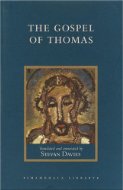
2. His disciples questioned him: Should we fast? In what way should we pray? Should we give to charity? From which foods should we abstain? Jesus responded: Do not lie. If there is something that you hate, do not do it, for everything is revealed beneath heaven. Nothing hidden will fail to be displayed. Nothing covered will remain undisclosed.8
8. One of the puzzles of the Thomas document is the fact that the straightforward answers to the questions poses here appear in saying 14a. The answers given here are much more indirect. Nevertheless, they fit well with the principle introduced previously that what is hidden will be revealed. The indirect answers to questions about religious practices indicate that finding what is hidden takes precedent over concerns about prayer and fasting and charitable donations.”Do not do what you hate"Is a version of the golden rule: "Do to others what you would have them do to you"because if it is spelled out it will be"Do not do unto others what you hate to have done to yourself.”
Stevan Davies & Andrew Harvey, Gospel of Thomas Annotated and Explained
Reviews, Skylights Path (2006) pp. 8-9
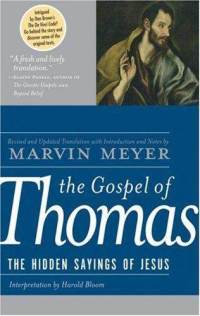
His followers asked him and said to him, "Do you want us to fast? How should we pray? Should we give to charity? What diet should we observe?”
Jesus said, "Do not lie, and do not do what you hate, because all things are disclosed before heaven. For there is nothing hidden that will not be revealed, and there is nothing covered that will remain undisclosed.”
"fast ... pray ... give to charity ... diet ...”; The questions and answers address matters of Jewish or Jewish-Christian observance of rules of personal piety; compare Matthew 6:1-18; Didache 8:1-3. Saying 14 provides a more direct answer to these specific questions. Here Jesus seems to ignore the questions about outward piety and instead focuses upon the inner disposition of an individual...
"For there is nothing hidden ...”: See saying 5:2 and the note on"nothing hidden.”
The Gospel of Thomas: The Hidden Sayings of Jesus
Marvin Meyer, HarperOne; 2nd edition (October 9, 1992) p. 23, 81-3
(Papyrus Oxyrhynchus 654.32-40)
[His followers] ask him [and] say, “How [shall we] fast? [How shall] we [pray]? How [shall we give to charity]? What [diet] shall [we] observe?”
Jesus says, "[Do not lie, and] do not do [what] you [hate, because all things are disclosed before] truth. [For there is nothing] hidden [that will not be apparent].”
Marvin Meyer, The Gospel of Thomas: The Hidden Sayings of Jesus
HarperOne; 2nd edition (October 9, 1992) p. 69
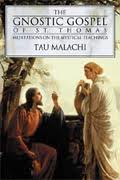
VERSE 6:
His disciples questioned him and said to him, "Do you want us to fast? How shall we pray? Shall we give alms? What diet shall we observe?”
Jesus said, "Do not tell lies, and do not do what you hate, for all things are plain in the sight of heaven. For nothing hidden will not become manifest, and nothing covered will remain without being uncovered.”
Religious doctrine and observance is a human invention. It does not necessarily have anything to do with spirituality and the Divine Life. Spiritual practice, devoid of spiritual living, will not bring about the necessary change in consciousness for enlightenment. The foundation of a true spirituality is the cultivation of your humanity and of the Divine potential with your humanity. Only when you cultivate your humanity and practice truth in your daily living is there fertile ground for spiritual practice to take root and bear fruit.
Receiving oral transmission of teachings and initiation but do not practice spiritual living and the cultivation of your humanity, there will be no change in you and higher awareness will not dawn. What do receiving teachings and initiation or engaging in prayer, meditation, and ritual mean if one does not live the Spirit and Truth of these practices daily? To learn about love and compassion, but not actively practice love and compassion in one's life, has no relevance. To study spiritual and esoteric teachings, yet not cultivate such qualities as patience, tolerance, understanding, generosity, kindness, compassion, forgiveness, and so on, has no relevance. The real meaning of whatever we might do spirituality, the teachings and initiations we might receive, the spiritual practice we might perform, lies in our ability to integrate the Truth and Light revealed in our experience and live according to it.
Here, the Master speaks of a spiritual life that anyone can practice. Fundamentally, he says," Practice speaking the Truth and treat others as you yourself would want to be treated.”He tells you to live in an open and honest way and to practice the Golden Rule. Who can say that they do not understand what this means or that they are incapable of practicing it? Indeed, it is a way that everyone who is willing can follow.
Now here is a secret. Your ultimate health and happiness is completely interconnected and interdependent with the health and happiness of everyone else. Your own well-being and the well-being of others is connected. You are not separated and isolated from anyone or anything else in existence. All of Creation is intimately interconnected and interdependent. What you do to your environment and the world, you do to yourself. When dealing with others and your environment, you are dealing with yourself, so, in reality, acting toward others as you could want to be treated is giving to yourself what you most desire. Indeed, it is a practice of a true or enlightened selfishness, as opposed to the ignorant selfishness we practice that brings harms to ourselves, others, and our environment. The Master is speaking from a awareness of Sacred Unity and encouraging the truth seeker to live in such a way as to cultivate that same awareness.
Suppose what you are doing is writing a book as you live your life— a book of your life. It is a book that is finished and made complete only at the moment of your death. Now reflect upon this book and consider the possibility of studying and rereading this book in the afterlife. Is it an interesting book? Do you like the central character and what he or she is accomplishing? Is the book uplifting? What sort of book is it? Is it a book akin to the Holy Scriptures that you could reread and study forever, or is it a book you would never be inclined to read again?
What sort of book is being authored with your life and the way you live it? It is good to inquire what you would change of this book and to set about making that changed. All is said and done and that is it—-and it goes with you.
Truly, it is a dangerous thing to live as though there is no consequence for one's actions or as though there is no accounting for how one has lived. The masters of all Wisdoms Traditions tell us that our future is born of our present actions, that the nature of our existence beyond the threshold of death is determined by how we are living now. Living without this awareness, one may, indeed, bring gret harm and suffering upon oneself.
Gnostic Christianity does not believe in eternal damnation but rather in reincarnation, which is to say a journey of consciousness through diverse states of existence that tend toward a progressive development and evolution of the soul or of consciousness itself. In the midst of this journey, there are heavens and hells and realms of admixture, as in the life of our present experience. Whether heaven or hell or something of admixture, each individual generates the causes and conditions of their own experience. One's own state of consciousness, one's own self-grasping, desire, and fear, brings one's experience. The creative power in oneself generates one's experience and manifests it. It is all a question of how one uses the Life-Power. The Soul enters into the experience and becomes the sentient being, corresponding with what one most desires. The soul travels the path one's desire follows.
Here, the Master speaks the plain and simple truth. It is a truth in your present experience, if you have eyes to look and see it. Anyone with any degree of understanding will surely see to live with this awareness. This awareness might be spoken of as living as though you were going to die tomorrow. How could you live today if you knew you were going to die tomorrow?c
Tau Malachi, The Gnostic Gospel of St. Thomas
Llewellyn Publications (June 8, 2004) pp. 18-20
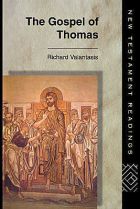
Saying 6
His disciples asked him and said to him, "Do you want us to fast? How should we pray? Should we give to charity? What diet should we observe?”
Jesus said, "Don't lie, and don't do what you hate, because all things are disclosed before heaven. After all, there is nothing hidden that won't be revealed, and there is nothing covered up that will remain undisclosed.”
The most appropriate answer to the question in verse 1 seems to be found in Saying 14, verses 1-3. The explanations to this might be something as simple as the misplacing of a sheet or two of papyrus which separated verses 6 and 14. There is no way of knowing that for certain, but it seems reasonable given that these sayings do not follow a prescribed pattern. A production error of this sort is very possible. The interpretation that follows will, however, leave aside this speculation, having simply noted that there may be other avenues of interpretation possible.
The narrative voice presents the question from the disciples about the practical conduct of life revolving about acts of piety (fasting, praying, alms-giving, and eating regimens). In a literary environment in which the emphasis has been on the self-sufficiency of the seekers, the narrative intrusion, as well as the content of the questions, surprise the readers. The narrative intrusion infantilizes the disciples, grouping them together as in one voice for many people, and presenting an importunate series of demands for information. And the questions revolve about the performance of pious acts: regulating food, abstaining from food, giving alms, praying—a kind of orientation toward the development of a social lifestyle that the remaining sayings seem to ignore. The questions, therefore, suggest that the narrator has no sympathy for the questions, and the readers/seekers are not expected to identify with them either. At their base, they operate at the wrong level for those interested in these sayings.
The inappropriate status of the questions becomes evident with the response provided: the questions about action results in moral instruction ("Don't lie, and don't do what you hate"). The moral formation provides instruction about honesty and the positive impetus toward action. These function again at the level of the example, followed by the theological or spiritual principles which inform them: "Because all things are disclosed before heaven.”All three precepts revolve about the disclosure of hidden motives and invisible dispositions and present that principle of disclosure under three different categories: everything is disclosed before heaven; hidden things will always be revealed; and those things covered up will be disclosed. So the pious acts miss the point because it is the interior or hidden motivation and performance that will be seen, not the inherent goodness of any activity or performance. The seekers cannot, like the foolish disciples who ask these questions, hide behind their pious activities.
The theme of disclosure and revelation has connected this saying with the previous one. The verbal connections probably explain their proximity to one another, but the theme nonetheless stands out. Those seekers who interpret these sayings expend great energy in finding ways to have the invisible made visible, the hidden manifest, and the secret revealed. The sayings work the various ways of seeking, here with the injunction to live a moral life, and in the previous saying with the emphasis on adequately reading the things that present themselves to the person. The theme will recur periodically throughout the collection, with a variety of strategies for acquiring such revelation and disclosure.
Richard Valantasis, The Gospel of Thomas
Routledge; 1 edition (June 27, 1997) pp. 63-4

“Betz (1963) unconvincingly argues for a Qumran background (the archangel Michael; cf. Shafaat 1981: 263-269, who likewise adduces DSS parallels; and Leaney 1972: 38-61, who says the Paraclete is God himself). Windisch (1968) advances the hardly more plausible hypothesis that the Paraclete is a kind of angel ... in human form’, be it a prophet or teacher. Johnston (1970) unsuccessfully proposes that the parakletos is an active divine power that has become embodied in certain leaders of the apostolic church, such as the fourth evangelist (see the critiques by Brown 1967:126 and 1971: 268-270, for whom the Paraclete is the ‘alter ego of Jesus’, 1967:132, cited in Smalley, 1996:297; cf. Burge 1987). Bultmann (1971: 566-572) views the concept as a Johannine appropriation of his Gnostic source’s figure of ‘helper’. Riesenfeld (1972: 266-274) postulates a sapiential provenance, which is equally unlikely. Boring( 1978:113-123) claims the Paraclete is an angel demythologized as the ‘spirit of prophecy’! Billington (1995: 90-115) appropriately stress the Paraclete’s role in mission. If the disciples are to witness to Jesus, they must understand the significance of his coming; witness to Jesus and the paraclete’s ministry are thus inseparable (15:26-27; 16:8-11;20:21-23). For a helpful discussion of the Paraclete as a part of the fourth Gospel's Lawsuit motif, esp. in 15:26- 16:15, see Lincoln 2000: 110-123, esp. 113-114.” (Kostenburger & Swain 2008, 97)
“Meditation is not to sit before the photograph but should be such that it works. It should activate the Paramchaitanya, making everything work miraculously. If this is not happening, then something is wrong.”
THE MOTHER: Messiah-Paraclete-Ruh
San Diego, USA—May 28, 1990
“This union of Atma and Shakti as the protector of one's existence is important to understand ... At a practical level what this means is that if one goes against the Spirit, identifying with anything apart from it, the heart 'catches'...
When we come to Sahaja Yoga the Tantra is damaged and impure and the heart 'catches.' There is nothing to be upset in that. One should settle down silently and work to undo the 'catches,' gradually and slowly. The whole Library of Divine Knowledge is at one's hand and if the heart's desire to evolve the being and achieve the Absolute is pure, the solution to every problem will occur automatically, effortlessly and spontaneously — Sahaj.
The ultimate act against the Spirit is to worship that which has no Spirit — gross matter or raksasas. Shri Muhammad inveighed against both.... The Atma and its expression is the sole Reality in the Universe. Identification with anything else causes the heart to 'catch.'”
THE MOTHER: Messiah-Paraclete-Ruh-Devi
“At the Nirvikalpa state, the Collective Consciousness becomes subtler and subtler. At that stage you can understand the very deep significance of things when the Reality starts becoming clearer....
You give him a statue of a deity and ask him all about this statue — whether it is all right or not. He might say that it is not alright. You can feel the subtle vibrations, whether it is in Dharma or otherwise.
Now can we say say that Ashtavinayaka's are living gods? How do you know Jyotirlingas are living? How will you know unless you know the integrations of all the great souls together? And how are you going to judge them? That is why you must get Realization.”
THE MOTHER: Messiah-Paraclete-Ruh-Devi
New Delhi, India—February 15, 1977
“So the first thing you have to do is never be a dishonest person, nor let others become or be dishonest. This is very important and all of you should together make it possible. The milk (in India) is adulterated, ghee is adulterated. Wherever I see everything is adulterated. All the people laugh at us, nobody believes us....
So promise that you will never do any sort of corruption, because if you do any corruption you should know that your one foot will be in hell. And second point is you don't have to tell any lies. What is the need to tell any lies? You tell the truth! The person who will always tell the truth, he will be a special and if he is a Sahaja Yogi then he will be magnificent.”
THE MOTHER: Messiah-Paraclete-Ruh-Devi
Diwali Puja 2007, India
“The Paraclete is peculiar to Johannine writings. On four occasions in John the Spirit is the Paraclete (parakletos; 14:16-17, 26; 15:26; 16:12-15). At 1 John 2:1 the exalted Jesus is described as parakletos, probably meaning advocate or helper in pleading our case before the Father. The noun derives from the verb parakaleo, the meaning and significance of which we examined above. The range may be recalled: to comfort, exhort, encourage, cry out for help, appeal. Various English translations indicate the variety of meaning given to translate the “Paraclete” in John: Comforter (KJV), Advocate (NRSV), Counselor (NIV).[35] Two points are important to note regarding the gift of the Paraclete: (1) The Paraclete binds us to the person and message of Jesus; this is the only ground for ministry, as I have argued throughout. (2) The Paraclete binds the community together as it gathers around Jesus.
1. The historical context of John’s Paraclete theology is the immediate crisis provoked for the community around Jesus by his death. The overarching question was: Does Jesus' death mark the end of the incarnation? The Paraclete carries forward the believer’s relationship with Jesus so that those who follow 1. The historical context of John’s Paraclete theology is the immediate crisis provoked for the community around Jesus by his death. The overarching question was: Does Jesus' death mark the end of the incarnation? The Paraclete carries forward the believer’s relationship with Jesus so that those who follow after the historical relationship with Jesus may also participate in his risen life. By using the term “another Advocate,” allon parakleton, John 14:16 tells us that Jesus is a Paraclete. As the “Spirit of truth,” the Paraclete shares in the paracletic work of Jesus, who is the truth (14:6). The Paraclete has no work independent of Jesus, and the significance of this for today’s so-called spirit theologies can hardly be overstated. As with Jesus in his incarnation, the Paraclete comes from the Father (14:16, 26);”
Reconstructing Pastoral Theology: A Christological Foundation
Andrew Purves, Westminister John Knox Press, Louisville, Kentucky (2004) p. 211
1. The historical context of John’s Paraclete theology is the immediate crisis provoked for the community around Jesus by his death. The overarching question was: Does Jesus' death mark the end of the incarnation? The Paraclete carries forward the believer’s relationship with Jesus so that those who follow 1. The historical context of John’s Paraclete theology is the immediate crisis provoked for the community around Jesus by his death. The overarching question was: Does Jesus' death mark the end of the incarnation? The Paraclete carries forward the believer’s relationship with Jesus so that those who follow after the historical relationship with Jesus may also participate in his risen life. By using the term “another Advocate,” allon parakleton, John 14:16 tells us that Jesus is a Paraclete. As the “Spirit of truth,” the Paraclete shares in the paracletic work of Jesus, who is the truth (14:6). The Paraclete has no work independent of Jesus, and the significance of this for today’s so-called spirit theologies can hardly be overstated. As with Jesus in his incarnation, the Paraclete comes from the Father (14:16, 26);”
Reconstructing Pastoral Theology: A Christological Foundation
Andrew Purves, Westminister John Knox Press, Louisville, Kentucky (2004) p. 211
THE APOCALYPSE OF THE SPIRIT-PARACLETE
The fulfillment of the promised divine eschatological instruction
“The original meaning of the word ‘apocalypse’, derived from the Greek apokalypsis, is in fact not the cataclysmic end of the world, but an ‘unveiling’, or ‘revelation’, a means whereby one gains insight into the present.” (Kovacs, 2013, 2) An apocalypse (Greek: apokalypsis meaning “an uncovering”) is in religious contexts knowledge or revelation, a disclosure of something hidden, “a vision of heavenly secrets that can make sense of earthly realities.” (Ehrman 2014, 59)
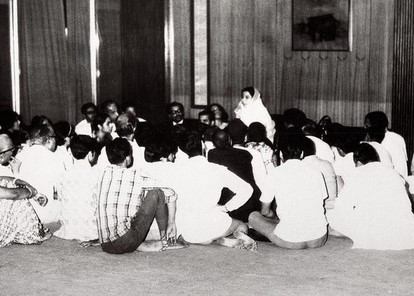
Shri Mataji Nirmala Devi (1923-2011) was Christian by birth, Hindu by marriage, and Paraclete by duty.
“The Paraclete will come (15:26; 16:7, 8, 13) as Jesus has come into the world (5:43; 16:28; 18:37)... The Paraclete will take the things of Christ (the things that are mine, ek tou emou) and declare them (16:14-15). Bishop Fison describes the humility of the Spirit, 'The true Holy Spirit of God does not advertise Herself: She effaces Herself and advertises Jesus.' ...
It is by the outgoing activity of the Spirit that the divine life communicates itself in and to the creation. The Spirit is God-in-relations. The Paraclete is the divine self-expression which will be and abide with you, and be in you (14:16-17). The Spirit's work is described in terms of utterance: teach you, didasko (14:26), remind you, hypomimnesko (14:26), testify, martyro (15:26), prove wrong, elencho (16:8), guide into truth, hodego (16:13), speak, laleo (16:13, twice), declare, anangello (16:13, 14, 15). The johannine terms describe verbal actions which intend a response in others who will receive (lambano), see (theoreo), or know (ginosko) the Spirit. Such speech-terms link the Spirit with the divine Word. The Spirit's initiatives imply God's personal engagement with humanity. The Spirit comes to be with others; the teaching Spirit implies a community of learners; forgetful persons need a prompter to remind them; one testifies expecting heed to be paid; one speaks and declares in order to be heard. The articulate Spirit is the correlative of the listening, Spirit-informed community.
The final Paraclete passage closes with a threefold repetition of the verb she will declare (anangello), 16:13-15. The Spirit will declare the things that are to come (v.13), and she will declare what is Christ's (vv. 14, 15). The things of Christ are a message that must be heralded...
The intention of the Spirit of truth is the restoration of an alienated, deceived humanity... The teaching role of the Paraclete tends to be remembered as a major emphasis of the Farewell Discourses, yet only 14:26 says She will teach you all things. (Teaching is, however, implied when 16:13-15 says that the Spirit will guide you into all truth, and will speak and declare.) Franz Mussner remarks that the word used in 14:26, didaskein, "means literally 'teach, instruct,' but in John it nearly always means to reveal.” (Stevick 2011, 292-7)
“The Paraclete will come (15:26; 16:7, 8, 13) as Jesus has come into the world (5:43; 16:28; 18:37)... The Paraclete will take the things of Christ (the things that are mine, ek tou emou) and declare them (16:14-15). Bishop Fison describes the humility of the Spirit, 'The true Holy Spirit of God does not advertise Herself: She effaces Herself and advertises Jesus.' ...
It is by the outgoing activity of the Spirit that the divine life communicates itself in and to the creation. The Spirit is God-in-relations. The Paraclete is the divine self-expression which will be and abide with you, and be in you (14:16-17). The Spirit's work is described in terms of utterance: teach you, didasko (14:26), remind you, hypomimnesko (14:26), testify, martyro (15:26), prove wrong, elencho (16:8), guide into truth, hodego (16:13), speak, laleo (16:13, twice), declare, anangello (16:13, 14, 15). The johannine terms describe verbal actions which intend a response in others who will receive (lambano), see (theoreo), or know (ginosko) the Spirit. Such speech-terms link the Spirit with the divine Word. The Spirit's initiatives imply God's personal engagement with humanity. The Spirit comes to be with others; the teaching Spirit implies a community of learners; forgetful persons need a prompter to remind them; one testifies expecting heed to be paid; one speaks and declares in order to be heard. The articulate Spirit is the correlative of the listening, Spirit-informed community.
The final Paraclete passage closes with a threefold repetition of the verb she will declare (anangello), 16:13-15. The Spirit will declare the things that are to come (v.13), and she will declare what is Christ's (vv. 14, 15). The things of Christ are a message that must be heralded...
The intention of the Spirit of truth is the restoration of an alienated, deceived humanity... The teaching role of the Paraclete tends to be remembered as a major emphasis of the Farewell Discourses, yet only 14:26 says She will teach you all things. (Teaching is, however, implied when 16:13-15 says that the Spirit will guide you into all truth, and will speak and declare.) Franz Mussner remarks that the word used in 14:26, didaskein, "means literally 'teach, instruct,' but in John it nearly always means to reveal.” (Stevick 2011, 292-7)
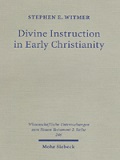
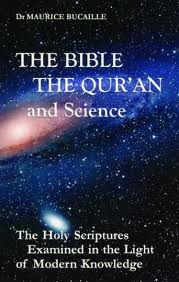
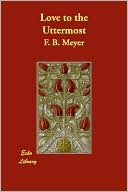
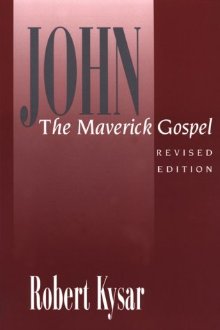
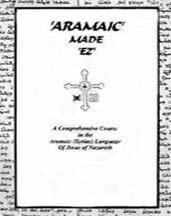
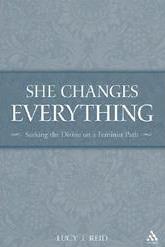
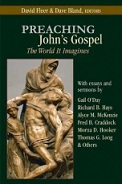
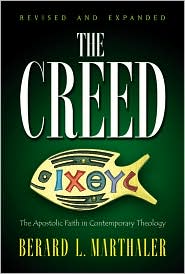
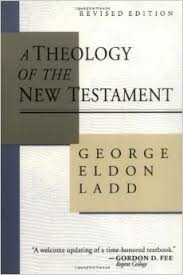
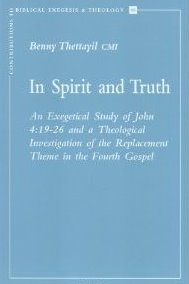

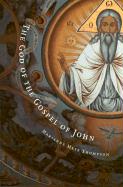
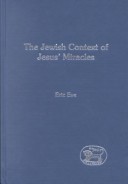
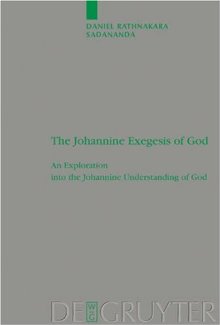

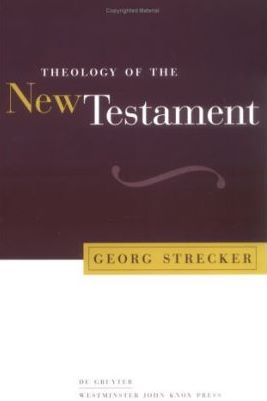
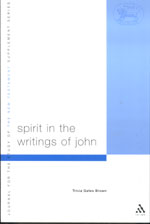
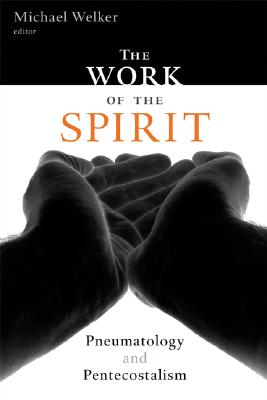
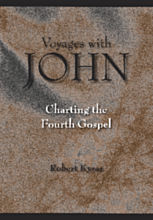
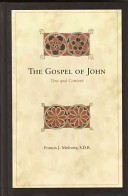
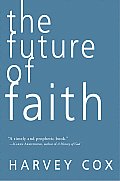
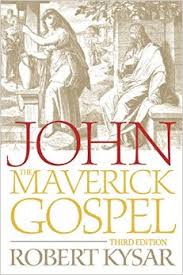
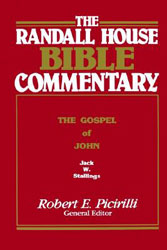

“The teaching of the Paraclete, as the continuation of Jesus' teaching, must also be understood as the fulfillment of the promise of eschatological divine instruction.”
Stephen E. Witmer, Divine instruction in Early Christianity
“Jesus therefore predicts that God will later send a human being to Earth to take up the role defined by John .i.e. to be a prophet who hears God's words and repeats his message to man.”
M. Bucaille, The Bible, the Qur'n, and Science
“And when Jesus foreannounced another Comforter, He must have intended a Person as distinct and helpful as He had been.”
F. B. Meyer, Love to the Utmost
“The Paraclete has a twofold function: to communicate Christ to believers and, to put the world on trial.”
Robert Kysar, John The Meverick Gospel
“But She—the Spirit, the Paraclete...—will teach you everything.”
Danny Mahar, Aramaic Made EZ)
“Grammatical nonsense but evidence of the theological desire to defeminize the Divine.”
Lucy Reid, She Changes Everything
“The functions of the Paraclete spelled out in verses 13-15... are all acts of open and bold speaking in the highest degree.”
David Fleer, Preaching John's Gospel
“The reaction of the world to the Paraclete will be much the same as the world's reaction was to Jesus.”
Berard L. Marthaler, The Creed: The Apostolic Faith in Contemporary Theology
Bultmann calls the “coming of the Redeemer an 'eschatological event,' 'the turning-point of the ages.”
G. Ladd, A Theology of the New Testament
“The Paraclete equated with the Holy Spirit, is the only mediator of the word of the exalted Christ.”
Benny Thettayil, In Spirit and Truth
“The divine Paraclete, and no lessor agency, must show the world how wrong it was about him who was in the right.”
Daniel B. Stevick , Jesus and His Own: A Commentary on John 13-17
Stephen Smalley asserts that “The Spirit-Paraclete ... in John's Gospel is understood as personal, indeed, as a person.”
Marianne Thompson, The God of the Gospel of John
“The Messiah will come and the great age of salvation will dawn (for the pious).”
Eric Eve, The Jewish context of Jesus' Miracles
“The remembrance is to relive and re-enact the Christ event, to bring about new eschatological decision in time and space.”
Daniel Rathnakara Sadananda, The Johannine Exegesis of God
“The Spirit acts in such an international situation as the revealer of 'judgment' on the powers that rule the world.”
Michael Welker, God the Spirit
The Paraclete's “Appearance means that sin, righteousness, and judgment will be revealed.”
Georg Strecker, Theology of the New Testament
“While the Spirit-Paraclete is the true broker, the brokers they rely on are impostors.”
T. G. Brown, Spirit in the writings of John
“The pneumatological activity ... of the Paraclete ... may most helpfully be considered in terms of the salvific working of the hidden Spirit.”
Michael Welker, The work of the Spirit
“The pneuma is the peculiar power by which the word becomes the words of eternal life.”
Robert Kysar, Voyages with John
“The gift of peace, therefore, is intimately associated with the gift of the Spirit-Paraclete.”
Francis J. Moloney, The Gospel of John
“This utopian hope, even when modestly expressed, links Jesus and the prophets to a much wider history of human longing.”
Harvey Cox, The Future of Faith
“Because of the presence of the Paraclete in the life of the believer, the blessings of the end-times—the eschaton—are already present.”
Robert Kysar, John
“They are going, by the Holy Spirit's power, to be part of the greatest miracle of all, bringing men to salvation.”
R. Picirilli, The Randall House Bible Commentary
“The Kingdom of God stands as a comprehensive term for all that the messianic salvation included... is something to be sought here and now (Mt. 6:33) and to be received as children receive a gift (Mk. 10:15 = Lk. 18:16-17).”
G. Ladd, A Theology of the New Testament
Stephen E. Witmer, Divine instruction in Early Christianity
“Jesus therefore predicts that God will later send a human being to Earth to take up the role defined by John .i.e. to be a prophet who hears God's words and repeats his message to man.”
M. Bucaille, The Bible, the Qur'n, and Science
“And when Jesus foreannounced another Comforter, He must have intended a Person as distinct and helpful as He had been.”
F. B. Meyer, Love to the Utmost
“The Paraclete has a twofold function: to communicate Christ to believers and, to put the world on trial.”
Robert Kysar, John The Meverick Gospel
“But She—the Spirit, the Paraclete...—will teach you everything.”
Danny Mahar, Aramaic Made EZ)
“Grammatical nonsense but evidence of the theological desire to defeminize the Divine.”
Lucy Reid, She Changes Everything
“The functions of the Paraclete spelled out in verses 13-15... are all acts of open and bold speaking in the highest degree.”
David Fleer, Preaching John's Gospel
“The reaction of the world to the Paraclete will be much the same as the world's reaction was to Jesus.”
Berard L. Marthaler, The Creed: The Apostolic Faith in Contemporary Theology
Bultmann calls the “coming of the Redeemer an 'eschatological event,' 'the turning-point of the ages.”
G. Ladd, A Theology of the New Testament
“The Paraclete equated with the Holy Spirit, is the only mediator of the word of the exalted Christ.”
Benny Thettayil, In Spirit and Truth
“The divine Paraclete, and no lessor agency, must show the world how wrong it was about him who was in the right.”
Daniel B. Stevick , Jesus and His Own: A Commentary on John 13-17
Stephen Smalley asserts that “The Spirit-Paraclete ... in John's Gospel is understood as personal, indeed, as a person.”
Marianne Thompson, The God of the Gospel of John
“The Messiah will come and the great age of salvation will dawn (for the pious).”
Eric Eve, The Jewish context of Jesus' Miracles
“The remembrance is to relive and re-enact the Christ event, to bring about new eschatological decision in time and space.”
Daniel Rathnakara Sadananda, The Johannine Exegesis of God
“The Spirit acts in such an international situation as the revealer of 'judgment' on the powers that rule the world.”
Michael Welker, God the Spirit
The Paraclete's “Appearance means that sin, righteousness, and judgment will be revealed.”
Georg Strecker, Theology of the New Testament
“While the Spirit-Paraclete is the true broker, the brokers they rely on are impostors.”
T. G. Brown, Spirit in the writings of John
“The pneumatological activity ... of the Paraclete ... may most helpfully be considered in terms of the salvific working of the hidden Spirit.”
Michael Welker, The work of the Spirit
“The pneuma is the peculiar power by which the word becomes the words of eternal life.”
Robert Kysar, Voyages with John
“The gift of peace, therefore, is intimately associated with the gift of the Spirit-Paraclete.”
Francis J. Moloney, The Gospel of John
“This utopian hope, even when modestly expressed, links Jesus and the prophets to a much wider history of human longing.”
Harvey Cox, The Future of Faith
“Because of the presence of the Paraclete in the life of the believer, the blessings of the end-times—the eschaton—are already present.”
Robert Kysar, John
“They are going, by the Holy Spirit's power, to be part of the greatest miracle of all, bringing men to salvation.”
R. Picirilli, The Randall House Bible Commentary
“The Kingdom of God stands as a comprehensive term for all that the messianic salvation included... is something to be sought here and now (Mt. 6:33) and to be received as children receive a gift (Mk. 10:15 = Lk. 18:16-17).”
G. Ladd, A Theology of the New Testament
“But today is the day I declare that I am the one who has to save the humanity. I declare I am the one who is Adishakti, who is the Mother of all the Mothers, who is the Primordial Mother, the Shakti, the desire of God, who has incarnated on this Earth to give its meaning to itself; to this creation, to human beings and I am sure through My Love and patience and My powers I am going to achieve it.
I was the one who was born again and again. But now in my complete form and complete powers I have come on this Earth not only for salvation of human beings, not only for their emancipation, but for granting them the Kingdom of Heaven, the joy, the bliss that your Father wants to bestow upon you.”
THE MOTHER: Messiah-Paraclete-Ruh
London, UK—December 2, 1979
“I am the one about which Christ has talked... I am the Holy Spirit who has incarnated on this Earth for your realization.”
THE MOTHER: Messiah-Paraclete-Ruh
New York, USA—September 30, 1981
“Tell all the nations and tell all the people all over the Great Message that the Time of Resurrection is here. Now, at this time, and that you are capable of doing it.”
THE MOTHER: Messiah-Paraclete-Ruh
Cowley Manor Seminar, UK—July 31, 1982
Guest: “Hello Mother.”
Shri Mataji: “Yes.”
Guest: “I wanted to know, is the Cool Breeze (Pneuma) that you have spoken about, you feel on the hands the Cool Wind of the Holy Spirit, as spoken about in the Bible?”
Shri Mataji: “Yes. Yes, yes, same thing, same thing. You have done the good job now, I must say.”
Interviewer: “Is it the Holy Spirit?”
Shri Mataji: “Yes, of course, is the Holy Spirit.”
Guest: “Aha... I am feeling it now on my hand through the [not clear]”
Shri Mataji: “It’s good.”
Interviewer: “Did you want to say anything more than that?”
Guest: “No, I just... That’s all I wanted to know because I...”
Shri Mataji: “Because you are thoughtless now. Enjoy yourself.”
Guest: “Thank you.”
THE MOTHER: Messiah-Paraclete-Ruh-Devi
Talkback Radio 2UE, Sydney, Australia—March 31, 1981
(The guest experienced the Cool Breeze [Pneuma/Prana/Chi] of the Spirit through the baptism [second birth by Spirit/Kundalini awakening]” given by the Comforter Shri Mataji over the radio. )
Second Guest: “I just want to ask Mother about a quotation from the Bible.”
Interviewer: “Yes, what’s that?”
Guest: “It says, ‘But the comfort of the Holy Spirit that the Father will send in My name would teach you all things.’ I would like to ask Her about that.”
Interviewer: “Could you just repeat the quotation again?”
Guest: “But the Comforter, the Holy Spirit, whom the Father will send in My name, will teach you all things.”
Interviewer: “And that’s from where?”
Guest: “John chapter 14, verse 26.”
Shri Mataji: “I think you should take your realization and then you will know the answer to it. Because, logically if it points out to one person, then you have to reach the conclusion, isn’t it? That’s a logical way of looking at things. But I am not going to say anything or claim anything. It is better you people find out yourself.”
Interviewer: “Does that answer your question?”
Guest: “Is the, is the Comforter on the Earth at the present time? Has the Comforter incarnated? Mataji should be able to tell us this because She said that through these vibrations on Her hands, She ...”
Shri Mataji: “Yes, She is very much here and She’s talking to you now. Can you believe that?”
Guest: “Well, I feel something cool [Pneuma/Prana/Chi] on my hand. Is that some indication of the ...?”
Shri Mataji: “Yes, very much so. So that’s the proof of the thing. You’ve already started feeling it in your hands.”
Guest: “Can I?”
Shri Mataji: “Ask the question, ‘Mother, are you the Comforter?’”
Guest: “Mother, are you the Comforter?”
Shri Mataji: “Ask it thrice.”
Guest: “Mother, are you the Comforter?”
Shri Mataji: “Again.”
Guest: “Mother, are you the Comforter?”
Shri Mataji: “Now, what do you get?”
Guest: “Oh, I feel this kind of cool tingling [Pneuma/Prana/Chi] passing all through my body.”
Shri Mataji: “That’s the answer now.”
THE MOTHER: Messiah-Paraclete-Ruh-Devi
Talkback Radio 2UE, Sydney, Australia—March 31, 1981
(Another guest also experienced the Cool Breeze [Pneuma/Prana/Chi] of the Spirit through the baptism [second birth by Spirit/Kundalini awakening]” given by the Comforter Shri Mataji over the radio. )
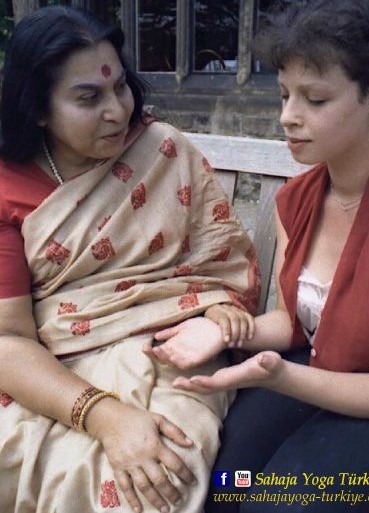
Shri Mataji Nirmala Devi (1923-2011): Christian by birth, Hindu by marriage and Paraclete by duty.
“The Paraclete and the disciples (vv. 25-26): The theme of departure (cf. vv. 1-6; vv. 18-24) returns. There are two "times" in the experience of the disciples: the now as Jesus speaks to them (v. 25) and the future time when the Paraclete, the Holy Spirit, sent by the Father in the name of Jesus, will be with them (v. 26). The Paraclete will replace Jesus' physical presence, teaching them all things and recalling for them everything he has said (v. 26). As Jesus is the Sent One of the Father (cf. 4:34; 5:23; 24, 30, 37; 6:38-40; 7:16; 8:16, 18, 26; 12:44-49), so is the Paraclete sent by the Father. The mission and purpose of the former Paraclete, Jesus (cf. 14:13-14), who speaks and teaches "his own" will continue into the mission and purpose of the "other Paraclete" (cf. v. 16) who teaches and brings back the memory of all that Jesus has said. The time of Jesus is intimately linked with the time after Jesus, and the accepted meaning of a departure has been undermined. The inability of the disciples to understand the words and deeds of Jesus will be overcome as they "remember" what he had said (cf. 2:22) and what had been written of him and done to him (cf. 12:16). The "remembering" will be the fruit of the presence of the Paraclete with the disciples in the in-between-time. In v. 16 Jesus focused on the inability of the world to know the Paraclete, but in v. 26 the gift of the Paraclete to "his own" is developed. As Jesus was with the disciples (v. 25), so will the Paraclete be with the disciples in the midst of hostility and rejection (v. 16). As the story has insisted that Jesus' teaching has revealed God to his disciples, so will the Paraclete recall and continue Jesus' revelation of God to the disciples (v. 26).” (Harrington 1998, 412)
“The Paraclete and the disciples (vv. 25-26): The theme of departure (cf. vv. 1-6; vv. 18-24) returns. There are two "times" in the experience of the disciples: the now as Jesus speaks to them (v. 25) and the future time when the Paraclete, the Holy Spirit, sent by the Father in the name of Jesus, will be with them (v. 26). The Paraclete will replace Jesus' physical presence, teaching them all things and recalling for them everything he has said (v. 26). As Jesus is the Sent One of the Father (cf. 4:34; 5:23; 24, 30, 37; 6:38-40; 7:16; 8:16, 18, 26; 12:44-49), so is the Paraclete sent by the Father. The mission and purpose of the former Paraclete, Jesus (cf. 14:13-14), who speaks and teaches "his own" will continue into the mission and purpose of the "other Paraclete" (cf. v. 16) who teaches and brings back the memory of all that Jesus has said. The time of Jesus is intimately linked with the time after Jesus, and the accepted meaning of a departure has been undermined. The inability of the disciples to understand the words and deeds of Jesus will be overcome as they "remember" what he had said (cf. 2:22) and what had been written of him and done to him (cf. 12:16). The "remembering" will be the fruit of the presence of the Paraclete with the disciples in the in-between-time. In v. 16 Jesus focused on the inability of the world to know the Paraclete, but in v. 26 the gift of the Paraclete to "his own" is developed. As Jesus was with the disciples (v. 25), so will the Paraclete be with the disciples in the midst of hostility and rejection (v. 16). As the story has insisted that Jesus' teaching has revealed God to his disciples, so will the Paraclete recall and continue Jesus' revelation of God to the disciples (v. 26).” (Harrington 1998, 412)
“This is the transformation that has worked, of which Christ has talked, Mohammed Sahib has talked, everybody has talked about this particular time when people will get transformed.”
THE MOTHER: Messiah-Paraclete-Ruh
Chistmas Puja, Ganapatipule, India—25 December 1997
“The Resurrection of Christ has to now be collective Resurrection. This is what is Mahayoga. Has to be the collective Resurrection.”
THE MOTHER: Messiah-Paraclete-Ruh
Easter Puja, London, UK—11 April 1982
“Today, Sahaja Yaga has reached the state of Mahayoga, which is en-masse evolution manifested through it. It is this day’s Yuga Dharma. It is the way the Last Judgment is taking place. Announce it to all the seekers of truth, to all the nations of the world, so that nobody misses the blessings of the divine to achieve their meaning, their absolute, their Spirit.”
THE MOTHER: Messiah-Paraclete-Ruh
MAHA AVATAR, ISSUE 1, JUL-SEP 1980
“The main thing that one has to understand is that the time has come for you to get all that is promised in the scriptures, not only in the Bible but all all the scriptures of the world. The time has come today that you have to become a Christian, a Brahmin, a Pir, through your Kundalini awakening only. There is no other way. And that your Last Judgment is also now.”
THE MOTHER: Messiah-Paraclete-Ruh
“You see, the Holy Ghost is the Mother. When they say about the Holy Ghost, She is the Mother... Now, the principle of Mother is in every, every scripture — has to be there. Now, the Mother's character is that She is the one who is the Womb, She is the one who is the Mother Earth, and She is the one who nourishes you. She nourishes us. You know that. And this Feminine thing in every human being resides as this Kundalini.”
THE MOTHER: Messiah-Paraclete-Ruh-Devi
Radio Interview, Santa Cruz, USA—1 October 1983
“But there is a Primordial Mother which was accepted by all the religions; even the Jews had it... In India, this is called as Adi Shakti. In every religion they had this Mother who was the Primordial Mother.”
THE MOTHER: Messiah-Paraclete-Ruh-Devi
TV Interview, Los Angeles, USA—11 October 1993

The Paraclete Shri Mataji (1923-2011)
Total number of Recorded Talks 3058, Public Programs 1178, Pujas 651 and Other (private conversations) 1249
“What are they awaiting but for the Hour to come upon them suddenly? Its Signs have already come. What good will their Reminder be to them when it does arrive?” (Qur'n, 47:18) “As the above verse indicates, God has revealed some of Doomsday's signs in the Qur'n. In Surat az-Zukhruf 43:61, God informs us that 'He [Jesus] is a Sign of the Hour. Have no doubt about it...' Thus we can say, based particularly on Islamic sources but also on the Old Testament and the New Testament, that we are living in the End Times.” Harun Yahya
Good News (An Naba) of Resurrection (Al-Qiyamah): Videos 3474, Audios 1945, Transcripts 3262 and Events 2413
“Concerning what are they disputing?
Concerning the Great News. [5889]
About which they cannot agree.
Verily, they shall soon (come to) know!
Verily, verily they shall soon (come to) know!”
surah 78:1-5 An Naba (The Great News)
5889. Great News: usually understood to mean the News or Message of the Resurrection.
Total number of Recorded Talks 3058, Public Programs 1178, Pujas 651 and Other (private conversations) 1249
“What are they awaiting but for the Hour to come upon them suddenly? Its Signs have already come. What good will their Reminder be to them when it does arrive?” (Qur'n, 47:18) “As the above verse indicates, God has revealed some of Doomsday's signs in the Qur'n. In Surat az-Zukhruf 43:61, God informs us that 'He [Jesus] is a Sign of the Hour. Have no doubt about it...' Thus we can say, based particularly on Islamic sources but also on the Old Testament and the New Testament, that we are living in the End Times.” Harun Yahya
Good News (An Naba) of Resurrection (Al-Qiyamah): Videos 3474, Audios 1945, Transcripts 3262 and Events 2413
“Concerning what are they disputing?
Concerning the Great News. [5889]
About which they cannot agree.
Verily, they shall soon (come to) know!
Verily, verily they shall soon (come to) know!”
surah 78:1-5 An Naba (The Great News)
5889. Great News: usually understood to mean the News or Message of the Resurrection.
Abdullah Yusuf Ali, The Holy Qur'n
Amana Corporation, 1989
[Moderator]: “Any other questions?”
[Audience]: “Pardon me for asking this question, but, earlier you talked about the Resurrection and you mentioned about the scriptures, where like in the Hindus scriptures they talk about the Kalki Avatar who will come for the Resurrection, and for the Christians, I know they talk about the return of Christ and all the religions talk about this Resurrection and the belief in the coming of the Messiah. So I just want to know since you say you are going to give the resurrection to us, what is your station?”
Shri Mataji: “In Russia?”
[Audience]: “And are you the promised Messiah? Shri Mataji, are you?”
Shri Mataji: “I see now I am not going to tell you anything about myself, to be very frank. Because see Christ said He was the Son of God, and they crucified Him. I don't want to get crucified. You have to find out. When you become the Spirit you will know what I am. I don't want to say anything about myself.”
THE MOTHER: Messiah-Paraclete-Ruh
Toronto, Canada—October 5, 1993
“Jesus then goes on the offensive against the scribes and Pharisees, pronouncing seven woes against them (Matt. 23:1-36). The final woe identifiers them with all those in Israel's history who have murdered and opposed the prophets. From Abel to Zechariah, all the blood of the righteous will come on them as they typologically fulfill this pattern in the murder of Jesus (23:29-36). They are the wicked tenants who think to kill the son and take his inheritance (21:38). They are seed of the serpent, a brood of vipers (23:33). Their house (the temple?) is desolate, and they will not see Jesus again until they bless him as he comes in the name of the Lord (23:37-39). Somehow, through the judgments Jesus announces against them, salvation will apparently come even for the people of Israel. As Olmstead puts it, Matthew "dares to hope for the day when many of Israel's sons and daughters will embrace Israel's Messiah (23:39), and in that hope engages in a continued mission in her.”” Hamilton 2010, 377
“It is the Mother who can awaken the Kundalini, and that the Kundalini is your own Mother. She is the Holy Ghost within you, the Adi Shakti, and She Herself achieves your transformation. By any talk, by any rationality, by anything, it cannot be done.”
THE MOTHER: Messiah-Paraclete-Ruh-Devi
“She is your pure Mother. She is the Mother who is individually with you. Forget your concepts, and forget your identifications. Please try to understand She is your Mother, waiting for ages to give you your real birth. She is the Holy Ghost within you. She has to give you your realization, and She's just waiting and waiting to do it.”
THE MOTHER: Messiah-Paraclete-Ruh
Sydney, Australia—Mar 22 1981
“The Kundalini is your own mother; your individual mother. And She has tape-recorded all your past and your aspirations. Everything! And She rises because She wants to give you your second birth. But She is your individual mother. You don't share Her with anybody else. Yours is a different, somebody else's is different because the tape-recording is different. We say She is the reflection of the Adi Shakti who is called as Holy Ghost in the Bible.”
THE MOTHER: Messiah-Paraclete-Ruh-Devi
Press Conference July 08 1999—London, UK
“The Great Goddess is both wholly transcendent and fully immanent: beyond space and time, she is yet embodied within all existent beings; without form as pure, infinite consciousness (cit) ... She is the universal, cosmic energy known as Sakti, and the psychophysical, guiding force designated as the Kundalini (Serpent Power) resident within each individual. She is eternal, without origin or birth, yet she is born in this world in age after age, to support those who seek her assistance. Precisely to provide comfort and guidance to her devotees, she presents herself in the Devi Gita to reveal the truths leading both to worldly happiness and to the supreme spiritual goals: dwelling in her Jeweled Island and mergence into her own perfect being.” (Brown, 1998, 2)
Disclaimer: Our material may be copied, printed and distributed by referring to this site. This site also contains copyrighted material the use of which has not always been specifically authorized by the copyright owner. We are making such material available to our readers under the education and research provisions of "fair use" in an effort to advance freedom of inquiry for a better understanding of religious, spiritual and inter-faith issues. The material on this site is distributed without profit. If you wish to use copyrighted material for purposes other than “fair use” you must request permission from the copyright owner.